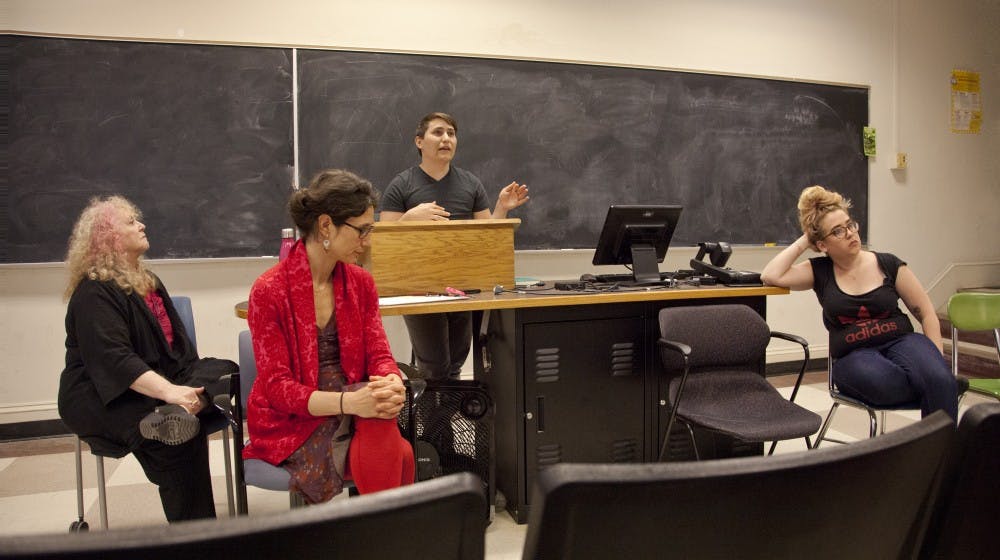A discussion entitled '“Anti-Semitism on Campus? The Dangers of a Single Story” was held Monday in Bingham Hall to voice the viewpoints of those who did not find UNC's recent "Conflict over Gaza" conference or Palestinian rapper Tamer Nafar's performance anti-Semitic.
“It’s one thing to feel like something is anti-Semitic, and that is understandable especially given what has happened in our country, and it makes sense that people would be very sensitive and even concerned about creating a space that feels like that," said Michal Osterweil, a professor in Global Studies at UNC who attended a small portion of the conference. "It is another thing to not allow anyone to have a difference of opinion about what he intended and also understanding the conference as a whole as completely not fitting that."
Four Jewish panelists shared their viewpoints, which they felt had been absent from the conversation, with the intention of diversifying the single anti-Semitic story that has emerged.
While they each felt compelled to speak about the growing controversy for various reasons, it was not an easy decision for them, as they feared backlash.
“Talking about this is scary,” said Elyse Crystall, a professor of English and Comparative Literature who attended the Gaza conference. “I don’t have tenure and some of us organizing this have encountered various pushbacks from administration explicitly about just having this conversation here today with all of you.”
Noah Rubin-Blose, a continuing education student at UNC and community activist, spoke first and defined anti-Semitism as ideological oppression originating from Christian Europe that targets Jews.
Then, Crystall discussed her own interpretation of Nafar’s song “Mama, I Fell in Love with a Jew,” which she did not find to be anti-Semitic.
“I heard satire, irony and pointed critique – critiquing us for our often unacknowledged white supremacist culture and our tolerance of anti-Semitism,” Crystall said.
She continued by presenting what she believes is a comparable analogy that puts Nafar’s words in context of the power relations.



